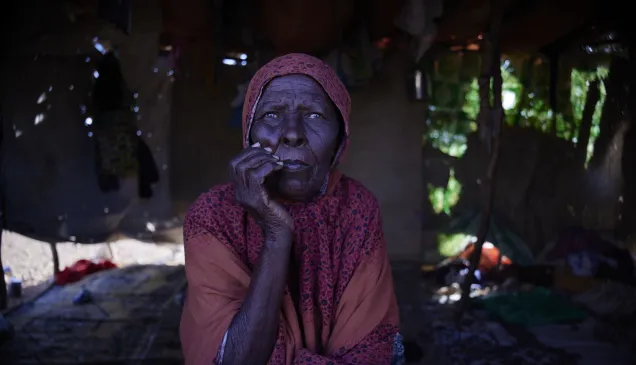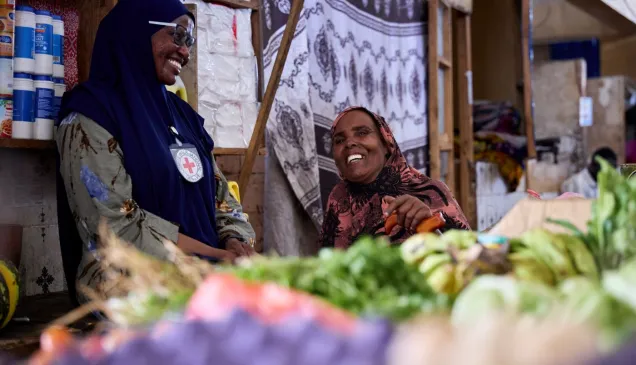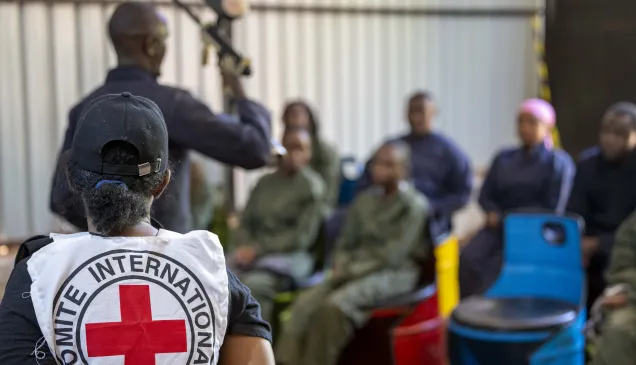Somalia's hungry and most vulnerable: Child malnutrition surges amid clinic closures
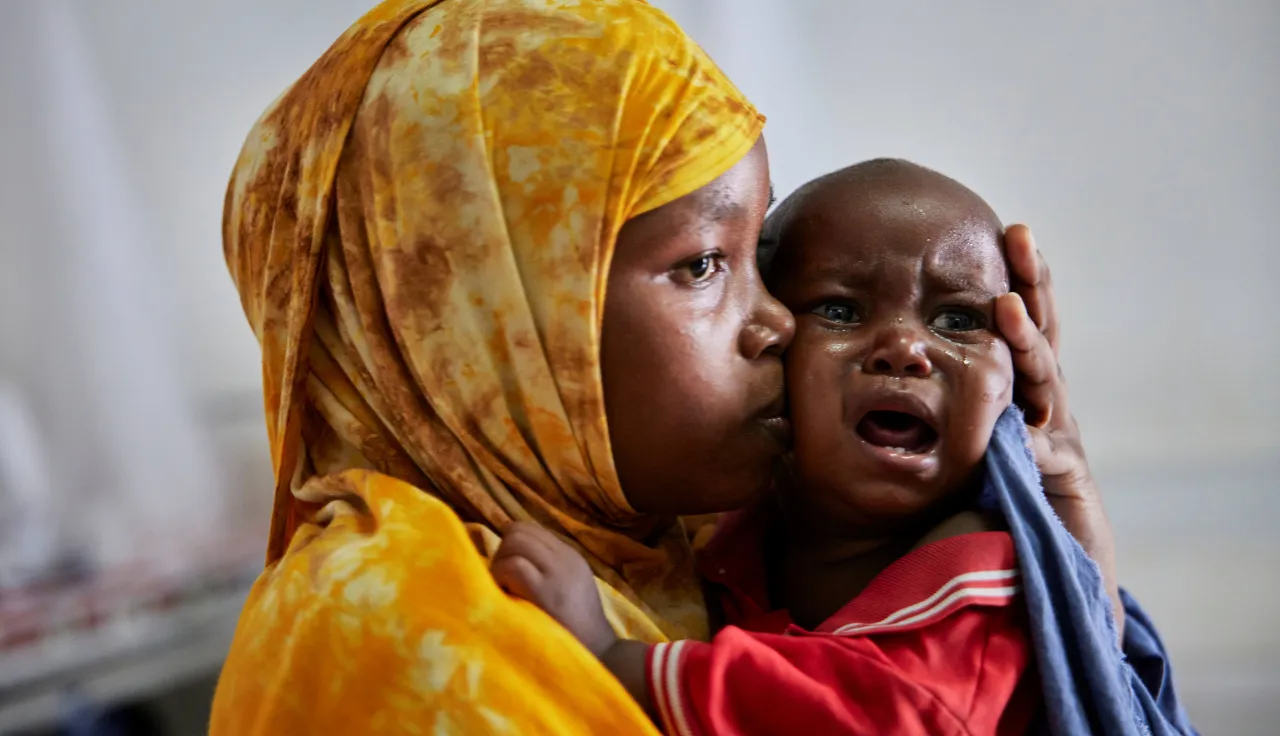
Photo: Abdikarim Mohamed / ICRC
Severe malnutrition among children has surged across Somalia, with health facilities supported by the International Committee of the Red Cross (ICRC) seeing record admissions since the devastating drought two years ago. In May alone, the stabilization centre at Kismayo General Hospital admitted 277 critically ill children, the highest monthly number since 2023. Between January and May, the centre admitted 863 patients, an increase of almost 70 per cent compared with the previous five months.
Stabilization centres like the one in Kismayo provide life-saving treatment for children under the age of five who are suffering from medical complications brought on by hunger. But such facilities are scarce. Nutritional clinics that once played the key role in preventing widespread malnutrition are closing due to funding cuts, leaving vulnerable families without access to early care.
The Somali Red Crescent Society (SRCS), supported by the ICRC, is also reporting an increase in patients receiving treatment at its outpatient nutrition clinics. The rising needs come amid intensifying conflict, mass displacement, and a cycle of floods and droughts that are pushing communities to the brink.
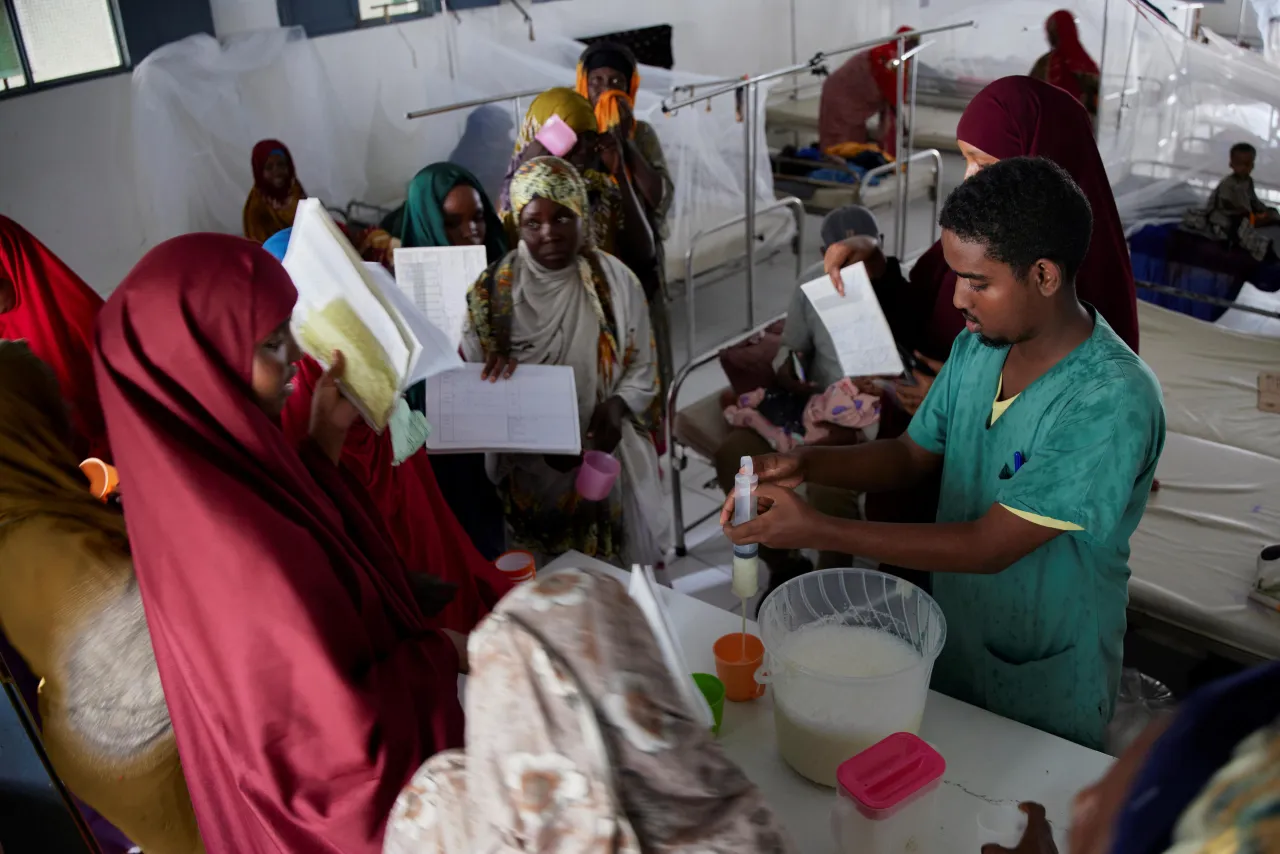
Photo: Abdikarim Mohamed / ICRC
Photo: Abdikarim Mohamed / ICRC
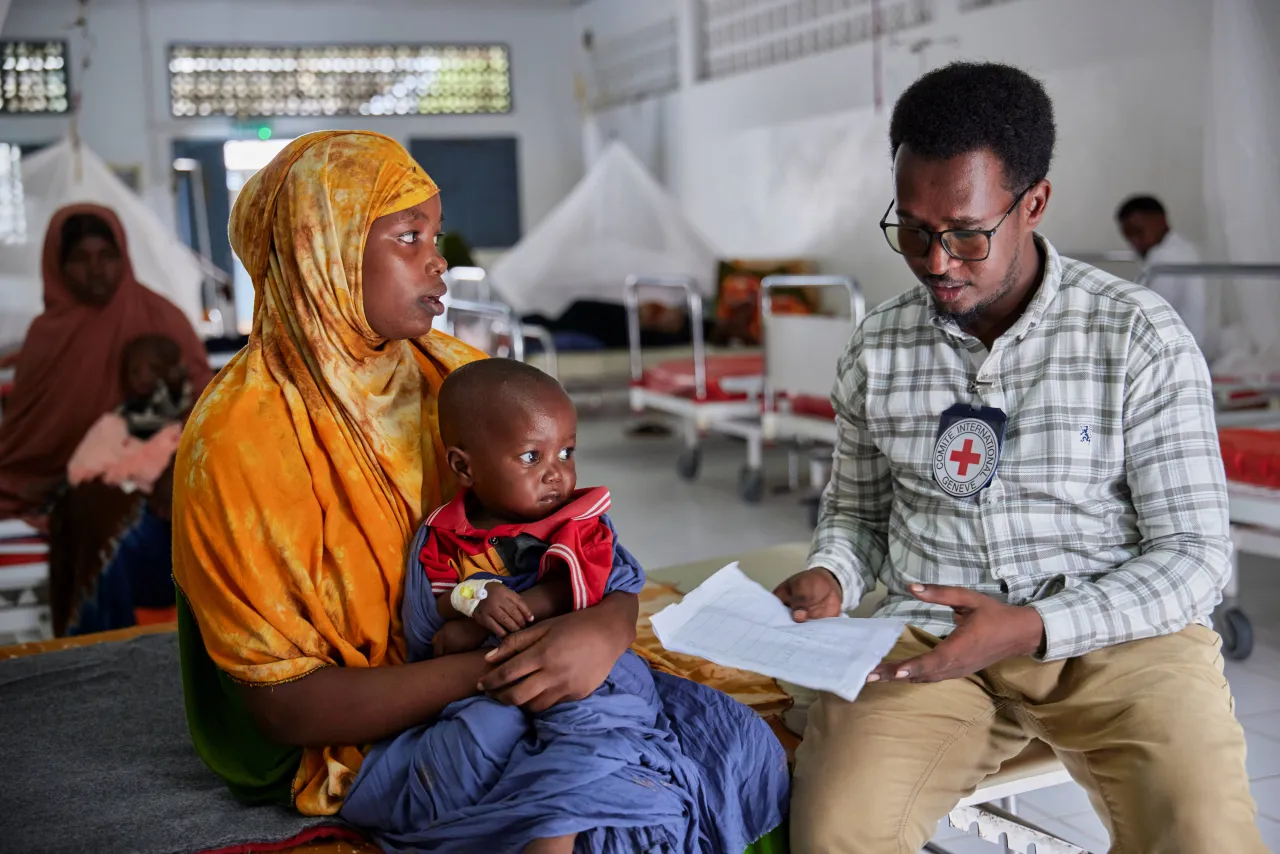
Photo: Abdikarim Mohamed / ICRC
Photo: Abdikarim Mohamed / ICRC
Revised humanitarian projections[1] estimate that food insecurity will worsen in the coming months, with nearly 47,000 children expected to suffer from acute malnutrition.
In response, the ICRC continues to support the stabilization centre in Kismayo, which has admitted nearly 900 severely malnourished children this year. Eleven ICRC-supported nutrition clinics run by the SRCS have treated close to 1,400 patients. In addition, more than 15,000 displaced families have received emergency cash assistance to help them buy food and essentials, while hospitals treating weapon-wounded patients continue to receive medical supplies and support.
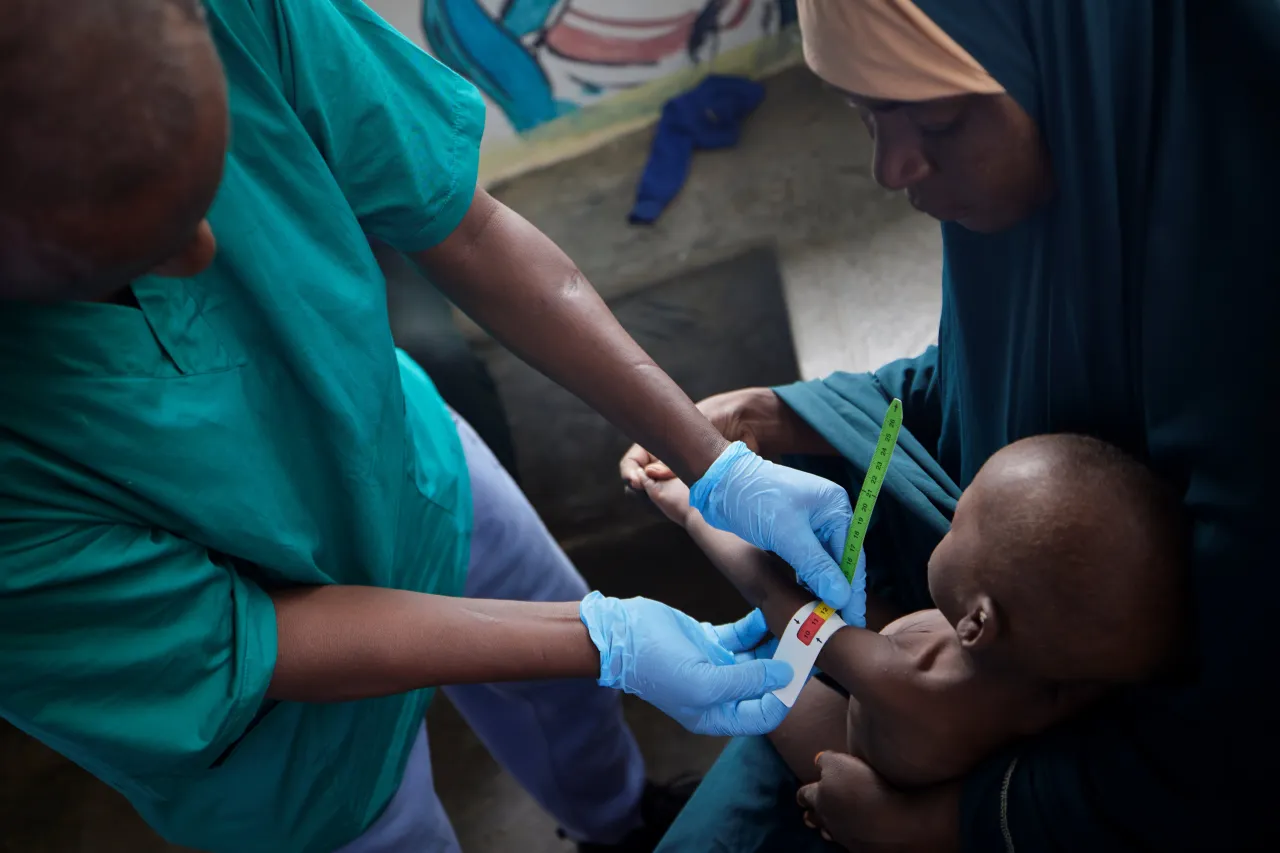
Photo: Abdikarim Mohamed / ICRC
Photo: Abdikarim Mohamed / ICRC

